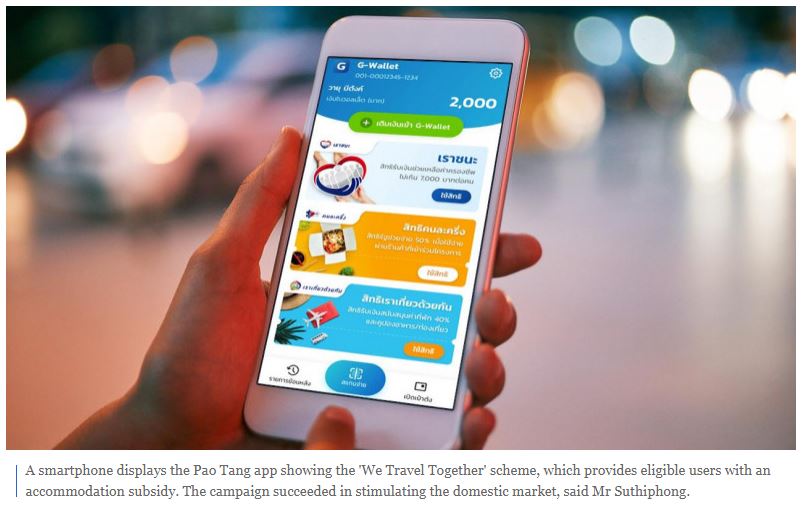Thailand: TAT unfazed by giveaways
Many countries in Asia recently announced giveaway campaigns to bolster their tourism industry, aiming to drive post-pandemic economic growth.
These include Hong Kong’s giveaway of 500,000 flight tickets to foreign visitors and Taiwan’s proposal to offer a cash incentive worth NT$5,000 (5,633 baht) per person.
Japan and South Korea, perennial favourite destinations among Asian tourists, also lifted most entry restrictions for all travellers and are poised to loosen tight curbs for Chinese visitors as the fear of Covid-19 subsides.
With overwhelming demand for tourism in Thailand, the private sector and the Tourism Authority of Thailand (TAT) still believe the country may not need to apply such strategies, with the government instead emphasising improving supply and service quality.
Chuwit Sirivejkul, TAT regional director for marketing in East Asia, said Hong Kong’s ticket giveaway will have little impact on Thai tourism due to different target segments.
However, it might have a limited impact on domestic tourism as some Thais may want to explore Hong Kong after being closed for three years.
Mr Chuwit said Hong Kong can attract tourists who favour mass events such as concerts, sporting events and shopping, particularly millennials, first jobbers as well as travellers with price sensitivity.
Since the TAT has been focusing on luring more quality tourists with high income, campaigns such as ticket giveaways may not be suitable for these target groups, he said.
Suthiphong Pheunphiphop, vice-president of the Tourism Council of Thailand, said he is more worried about improving the tourism supply side to catch up with growing demand.
With the number of foreign tourist arrivals surpassing 4 million in only two months, promotional efforts should come after development policies to help hotels, airlines and airports recruit more staff and equip them with high service standards.
PRIORITISE LOCAL SUBSIDY
Mr Suthiphong said campaigns that support local tourism — such as the ‘We Travel Together’ scheme — have succeeded in stimulating the domestic market.
This approach can also help reduce the risk of overly depending on international tourism — as was evident during the three-year pandemic, which brought the tourism industry to its knees.
He said when looking at countries which have strong domestic tourism like Japan and China, they could better manage risks in terms of tourism.
Meanwhile, he said during the 2-3 month gap during the general election, the tourism stimulus budget worth 4 billion baht — which the cabinet approved in January — would not be fully utilised and might be wasted if it could not be allocated to effective projects.
Suksit Suvunditkul, president of the southern chapter of the Thai Hotels Association (THA), said many countries might offer promotional campaigns or convenient entry to lure Chinese travellers, but this market will remain a significant contributor to Phuket tourism and might not experience a downturn in the short term.
Mr Suksit said promotion was not a point of concern for Thai tourism but the industry is more worried about low flight capacity which still needs more time to recover.
He said even though airfares are very high at the moment, most flights to Phuket have been fully booked, suggesting there is already strong demand.
Mr Suksit said the country should rather use the budget for other improvements, such as recruiting and training staff for hotels, airports and tour bus operators.
A THA survey showed the occupancy rate of Phuket hotels at 88% in January.
Mr Suksit said the same level or at least 85% was expected in February, while the hotel room rate remained below the pre-pandemic rate by 20% for the first two months.
He said hotels in Phuket remain interested in joining the We Travel Together scheme to boost the domestic market during the low season.
Source: https://www.bangkokpost.com/business/2522016/tat-unfazed-by-giveaways


 Thailand
Thailand




